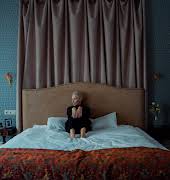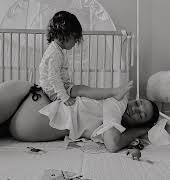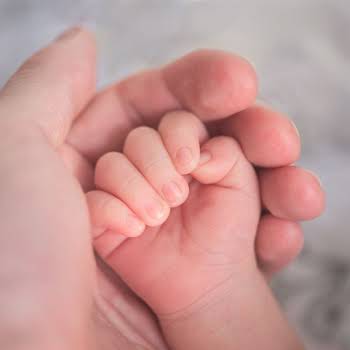
A new study shows the impact of your birth order on your personality (and second borns do not fare well)
By Amanda Cassidy
09th Aug 2019
09th Aug 2019
Your position in your family impacts your personality. Studies have shown this consistently over time. But now a new study has revealed some interesting data on those born second. Amanda Cassidy, herself second in a line of five, looks at birth order and how it shapes us.
“First is the worst, second is the best, third is the one with the hairy chest…” We ran out of rhyme in my family which happens to be made up of five siblings, but that didn’t matter because I was born second, aka, the best.
But it turns out that a new study has found unsettling links between secondborn children and delinquency. The research carried out by the Massachusetts Institute of Technology may just have dispelled my glorious place in my family history. Dethroned by science.
Related: Turning 40: Raising a glass to coming out the other side
After investigating thousands of children across Florida and Denmark, the authors of the study made an interesting discovery; “Second-born boys are substantially (yes, substantially) more likely to exhibit delinquency problems compared to their older siblings”
Birth Order
And it wasn’t just a glitch. It found that second-born boys are involved in the juvenile justice system at a rate of 40% higher than first-borns. Interestingly, the tendency towards delinquency was more notable in families with two boys – adding a girl into the mix brought delinquency rates down.
The reason, given by the authors of the study, lies firmly in the lap of the parents. “We consider differences in parental attention as a potential contributing factor to the gaps in delinquency across the birth order. Second-born children tend to have less maternal attention than do their older siblings because first-born children experience their mother’s maternity leaves, and temporarily reduced labor market participation both following their own births as well as following the birth of the second-born.”
Anyone for fries along with that dollop of guilt?
As a mother of a second-born son, this study doesn’t sit well with me. Thank goodness I’ve two daughters to dilute his precarious future in juvvy. But, in all honesty, how significantly can your birth order truly shape your personality?
Scholars disagree enough to cast doubt on the myth that middle children are trouble and that younger siblings remain infantilised. Alfred Adler, a 20th-century psychotherapist, considered the opposite; He agreed that firstborns are neurotic because they get knocked off their baby perch once more children come along. But Adler believed that youngest kids are most ambitious (because they’ve seen their older siblings mistakes and vow to do better).
Whereas according to Adler, middle children are optimally positioned in the family and are characterised by emotional stability.
Niche
It makes sense that every child takes up a certain niche within a family unit and uses that position to master life. Older children (and only children) have less reason to fight against the status quo, they are also more likely to agree with the same values as their parents. Younger siblings are more likely to rebel against their parent’s views and therefore tend to choose alternative paths in life.
Another study carried out by Saarland University in Germany found that older siblings held a small IQ advantage over their siblings. (Yes, I added the word ‘small’ because my sister reads my articles).
That same study concluded that perhaps the effect of your birth order on your personality are exaggerated and while it is quite possible that the position in sibling sequence shapes you, every family is different. So while there may be an influence, it isn’t in a systemic way.
Arguably, genes, environment and the way you are parented have a greater influence on character. I guess only time will tell…
Image via Unsplash.com
Read more: How to raise feminist boys
Read more: The art of raising polite children
Read more: Raising boys versus raising girls: Should there be any difference?























